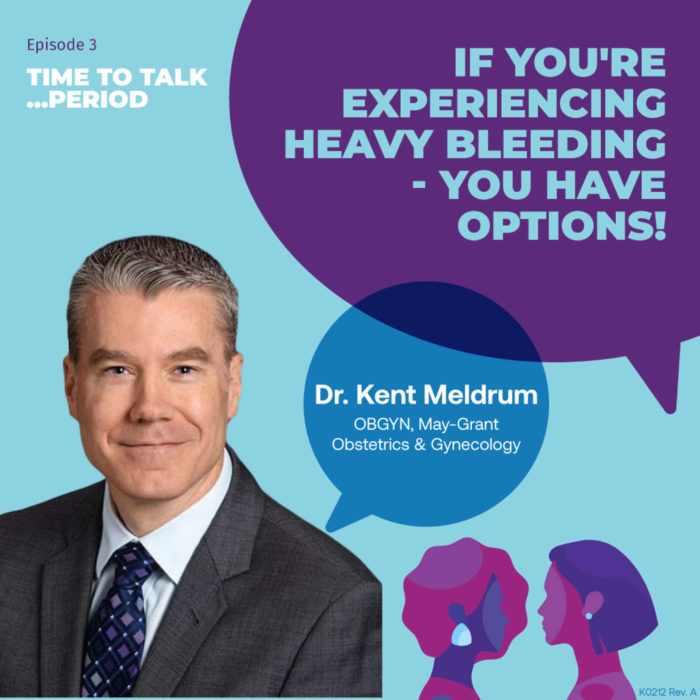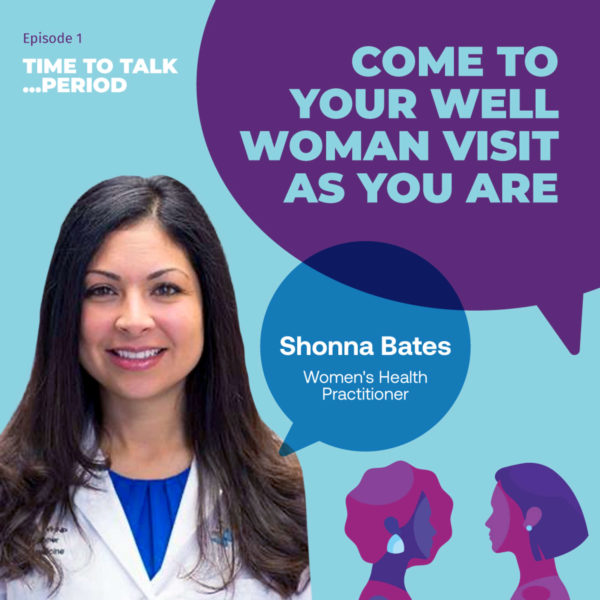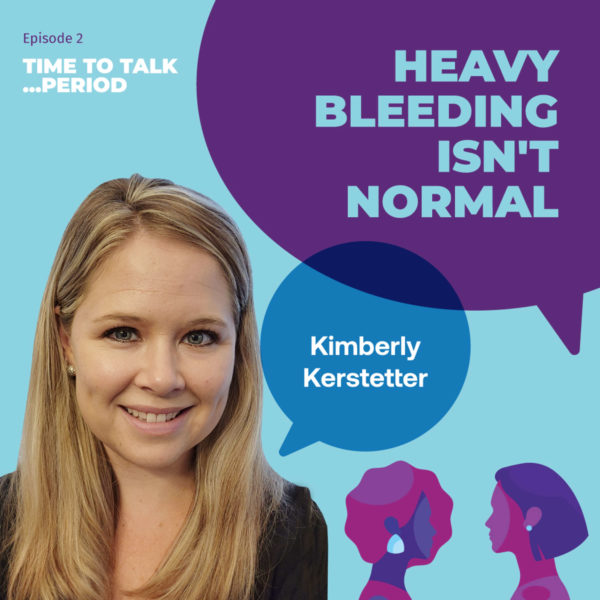If you’re experiencing heavy bleeding—you have options! – Dr. Kent Meldrum : 3
We asked OBGYN Kent Meldrum, MD to discuss a common misconception: hysterectomy is the only option for treatment of heavy periods. While there are situations where a hysterectomy is necessary, Dr. Meldrum explains to our listeners that it may not be the best surgery for most patients with heavy bleeding.
For the past eight years, Dr. Meldrum has been practicing at May-Grant Obstetrics and Gynecology in Lancaster, PA with his team of OBGYNs, nurse practitioners, and midwives. The team at May-Grant prides itself on providing women with treatment options based on individual needs. When it comes to treating Abnormal Uterine Bleeding (AUB), they look to the most effective, least invasive and most affordable option.
Listen as co-hosts Katie Carranza, RN, BSN and Shelly Spicer, RN, BSN ask some great questions about heavy period bleeding and AUB. They dig into AUB-E, a category of AUB where structural causes such as fibroids and cancer have been ruled out.
Dr. Meldrum reviews the most effective hormonal therapies and surgical procedures and reassures us that there are options in how to treat a heavy period. He also reviews a successful, minimally invasive procedure that takes only a few minutes to perform.
Whether you are planning on having children or are past that point, you’ll learn about the endometrium, diagnosing abnormal bleeding, treatment plans, risks, costs and expected outcomes.
Don’t miss the last 5 minutes where Katie and Shelly do a little myth-busting. Just when you thought you’ve heard it all! This podcast has something for everyone.
Not just another period podcast–we know women are busy, so we get right to it.
It’s time to talk, period.
In this podcast:
- Diagnosing Abnormal Uterine Bleeding (AUB)
- Defining the endometrium
- Defining Abnormal Uterine Bleeding – Endometrial (AUB-E)
- Range of AUB treatment options from over-the-counter medicine to hysterectomy
- Satisfaction and success rates
- Feedback after endometrial ablation
- Risks associated with different treatment options
- Mythbusters
4 Steps to Peace of Mind:
Our Time to Talk…Period co-hosts, Shelly and Katie, want to remind you that you are unique but not alone! ALL women get periods, all women should get pelvic exams, and up to one in three women will experience Abnormal Uterine Bleeding (AUB1).
Knowing if you have a problematic condition will bring you peace of mind! These four simple steps can take you from being stressed to set-free!
- Take the Period Quiz. Take this simple 6-question quiz to discover whether or not you have abnormal bleeding or a problematic condition requiring a visit.
- Make that Appointment! It doesn’t matter if you’ve delayed seeing a physician for a year, or two or more! You’ve come this far and owe it to yourself to make that appointment. As Dr. Meldrum explains, find a healthcare provider who will review all available options. Take the Period Quiz results with you to start this conversation.
- Ask Questions. Ask questions, listen, then ask more questions. It’s important that you feel comfortable asking the hard questions that help you and your provider get to the root of the symptoms you are experiencing.
- Empower other Women! You are the best advocate for the women in your life. Encourage the women you know who experience problematic periods to get talking, get into their GYN for a checkup, and get answers! Share the information you’ve learned and share this podcast.
Minerva Surgical is thankful to host a podcast where women of all backgrounds can come together and talk openly and honestly. We’ll bring new perspectives each month and hope you will be with us on our journey to empower women!
1. Davis E, Sparzak PB. Abnormal Uterine Bleeding. [Updated 2022 Aug 22]. In: StatPearls [Internet]. Treasure Island (FL): StatPearls Publishing; 2022 Jan. Accessed October 14, 2022, from https://www. ncbi.nlm.nih.gov/books/NBK532913
K0212 Rev. A




